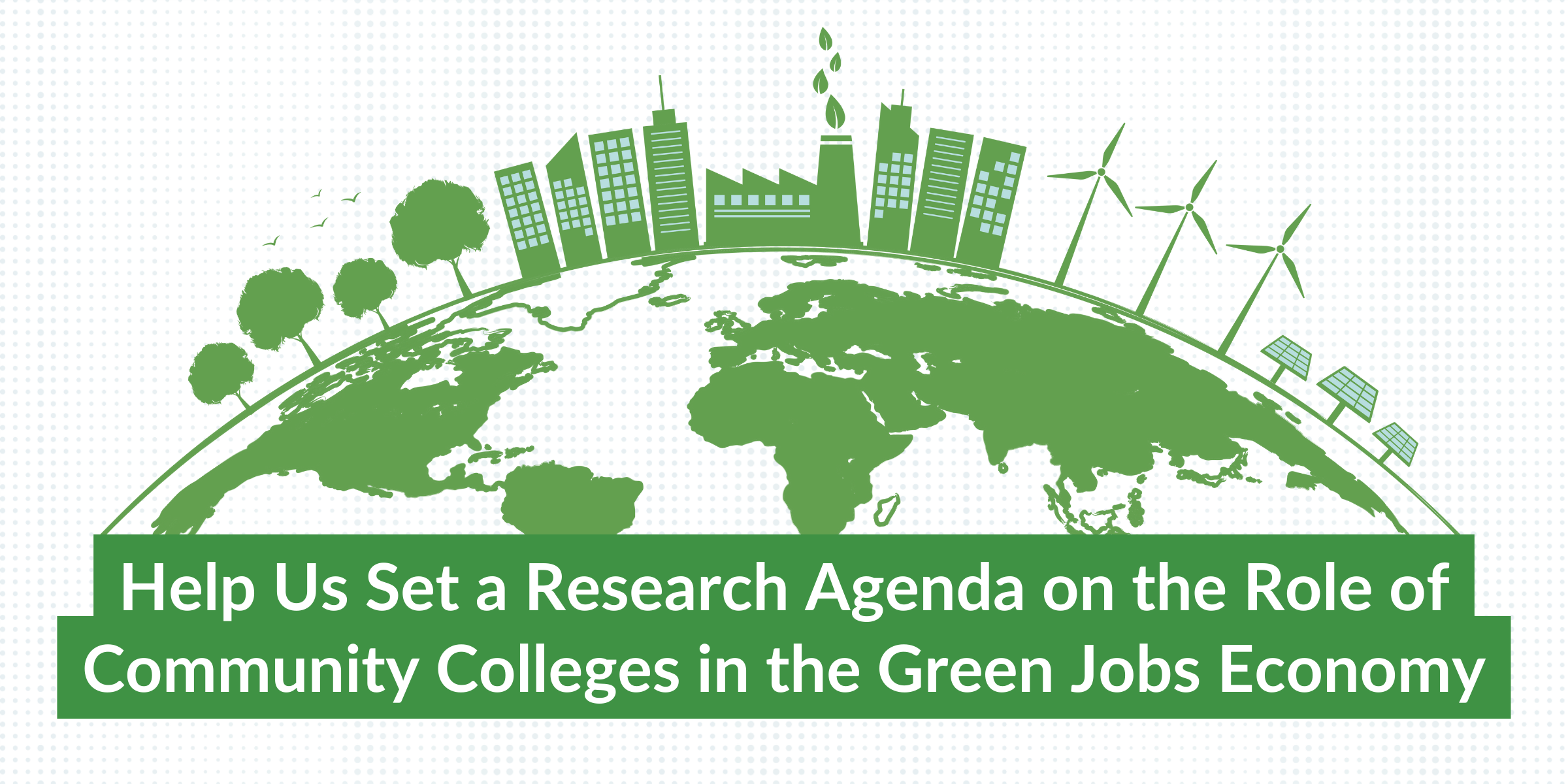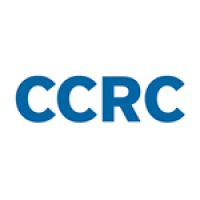By Susan Bickerstaff, Maggie P. Fay, and Maria Cormier
To limit the impacts of climate change, the United States set targets in 2021 to reduce greenhouse gas emissions to half of 2005 levels by 2030 and to achieve net-zero emissions no later than 2050. To meet these targets, the federal government is investing in new energy and transportation infrastructure at a massive scale. These investments, combined with changing market conditions and emerging technologies, are predicted to dramatically reshape the workforce. In addition to facilitating the creation of hundreds of thousands of clean energy and related jobs, workers in existing jobs will need to learn new skills and adapt to changing industry practices.
Community colleges are ideally positioned to lead efforts to prepare workers for the green economy. Community colleges are designed to be responsive to local needs and are trusted institutions in their communities. They collaborate closely with industry partners and advisory boards as part of their workforce development mission. Many also have strong relationships with local K-12 school districts and regional four-year colleges and universities, putting them at the center of efforts to create pathways to green economy postsecondary training and education. And because they disproportionately enroll underserved students, community colleges may help ensure that vulnerable communities participate in new jobs that mitigate climate impacts.
Community colleges around the country are already engaged in preparing workers for workplace changes that are underway in energy, agriculture, transportation, and other fields. For example, in November 2023 Bakersfield College in California opened the Regenerative Agriculture Education Center, which will educate students and the community on sustainable and technologically advanced agricultural practices, including agrivoltaics (using land for both solar energy production and agriculture). Earlier last year, Southwest Wisconsin Technical College launched an associate degree program in sustainable energy management to prepare students for careers in the energy efficiency, building systems, and renewable energy industries. And in January 2024, the Illinois Community College Board was awarded a grant from the U.S. Department of Energy to expand training opportunities for jobs in clean energy and other fields related to waste and pollution reduction at four community colleges in the state.
We want to hear from you! Join CCRC at the AACC Annual Conference for a pre-conference symposium on preparing students for the green economy on April 6th, 9:30 a.m. to 4:30 p.m. ET. Register on the conference registration page by March 22nd. Limited funding is available for travel and registration for teams from rural and tribal colleges. Contact CCRC’s Maggie Fay for information at fay@tc.edu.
Yet these efforts come with myriad challenges. Building new programs of study requires substantial financial investments and ongoing resources. Aligning programs to labor market needs is challenging in emerging fields where the demand for workers and the pathways to jobs that pay family-sustaining wages can be unclear. New programs may also be more challenging to market to students who are not familiar with the names of new jobs and industries. What is more, to break longstanding patterns of inequitable participation in higher paying technical fields, new programs should focus on recruiting and retaining women and others from historically marginalized groups. Hiring and training qualified instructors is an additional challenge.
To facilitate conversation on these topics, the Community College Research Center is hosting a half-day symposium called Building a Sustainable Future: The Role of Community Colleges in Combating Climate Change and Preparing Students for the Green Economy. It will be held in conjunction with the Annual Conference of the American Association of Community Colleges in April 2024. The symposium will feature expert speakers, panelists from community colleges with innovative programs, and structured discussions on topics including accessing funding, student and faculty recruitment, and working creatively with industry and government partners. The symposium will result in a call to action to elevate the role community colleges play in addressing climate change—the call to action will highlight the needs and opportunities for public and private sector coordination and policy to help community colleges fulfill their promise in preparing students for the green economy.
As a part of this work, we want to hear from you and hope you will consider joining us at the symposium. In addition to networking, learning from other community colleges around the country, and hearing from experts, the symposium is an opportunity for you to help us understand what community colleges need to advance this work and to help formulate a research agenda to support the transition to a green workforce.





